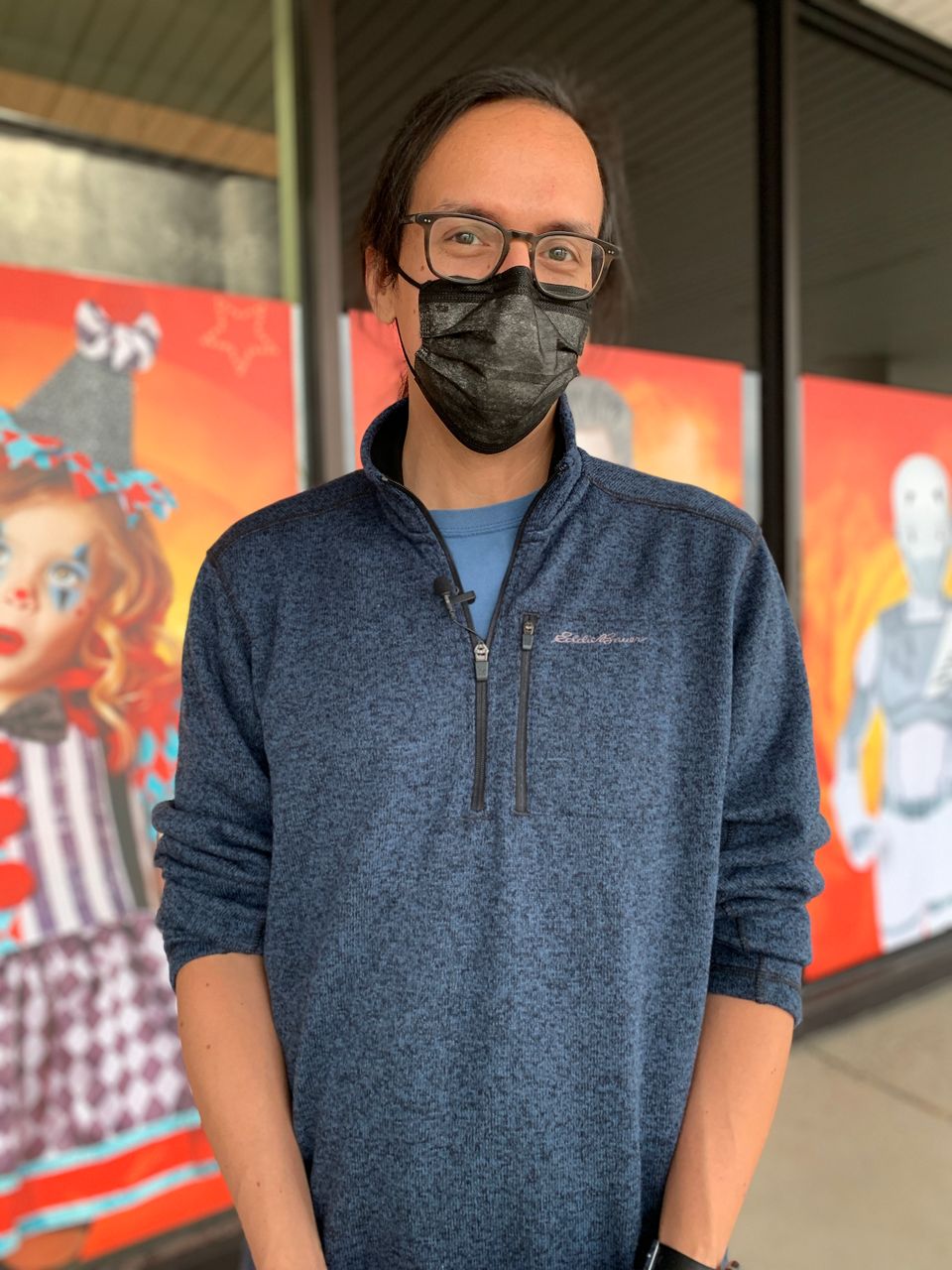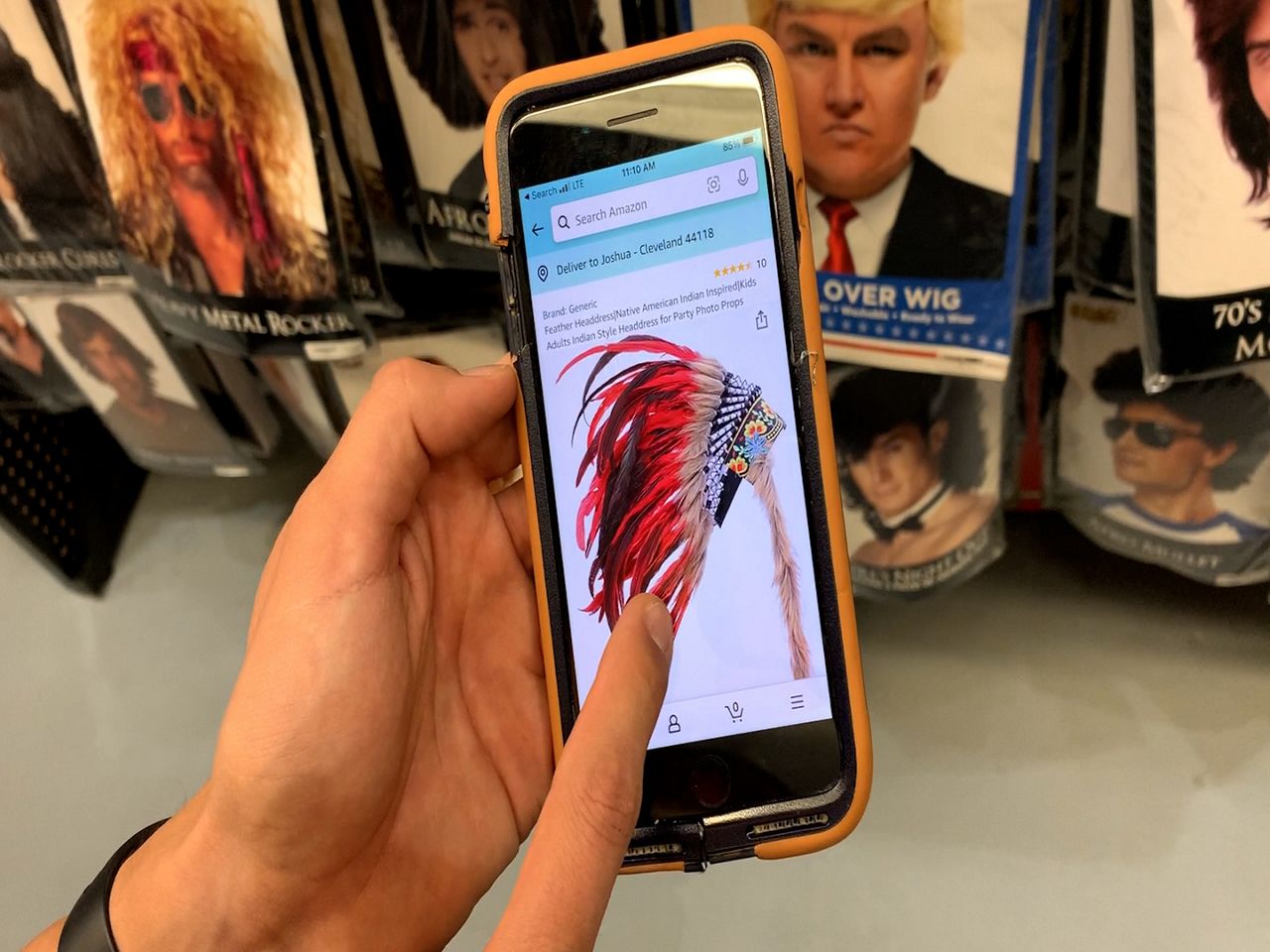CLEVELAND — Halloween is a time for people to get creative and dress up as someone or something else. But Joshua Hunt, who is Cheyenne and a board member of the Lake Erie Native American Council, said it’s not a time to make an entire culture your costume, otherwise known as cultural appropriation.
“My identity is not a joke,” said Hunt. “Ethnic and racial identities are not a costume. We cannot just take them off. So you might want to dress up as a Native American. But at the end of the day, you can take that off, whereas I can't take off my skin.”

The dictionary definition of cultural appropriation is "the adoption, usually without acknowledgment, of cultural identity markers from subcultures or minority communities into mainstream culture by people with a relatively privileged status." Hunt said the feathers people wear on Halloween as a costume are sacred to Native American culture.
“Feathers or feather headdresses, those are given to people that have made large sacrifices for their communities. Native Americans see it the same way as Christians see the cross,” said Hunt. “That's something that's given. That's earned like a medal of honor. So when it's taken and turned into a play thing, or a costume, it's disrespected. No one would wear a medal of honor that didn't earn it.”
The feather headdress is just one example. Wearing things like a sombrero and a mustache, a hijab or an afro can all stereotype ethnic groups.
“Why are you dehumanizing a whole race of people? Why are you dehumanizing people? You shouldn't be doing that. You shouldn't be teaching your children that it's OK to stereotype, disrespect and dehumanize whole groups of marginalized people,” said Hunt. “That's especially bad since there's an epidemic of missing and murdered Indigenous women. When you take Native American women and objectify them, dehumanize them (or) sexualize them, you're contributing to that epidemic.”

There are gray areas, but there’s also a line, Hunt said.
Hunt said some costumes should be avoided altogether because of the deeper meaning behind certain outfits. He said knowing the whole historical context is very important.
“It's about respecting people and treating people with dignity, and knowing that there's a historical context here of again, marginalization, oppression and things like that,” said Hunt. “Vampires are not a marginalized, oppressed group whose culture is being taken advantage of here, or whose culture is being turned into a stereotype. So monsters, demons, Chucky, Freddy Krueger — these are all fantasies, not representations of whole human beings and whole races of human beings again with a history of marginalization, oppression (and) discrimination. You can be a piece of bubblegum underneath a chair. I've seen lots of fun things. Or go as an M&M, or something fun like that. No one's harmed. No one's disrespected.”
He said there's no shortage of costumes to choose from, so if in doubt, don't.
“Just because you legally can doesn't mean that you should,” said Hunt. “I shouldn't do those things on moral and ethical grounds because it's wrong. It is harmful. This has to stop now. It starts and stops with you — the adults, the parents, teachers, etc.”



